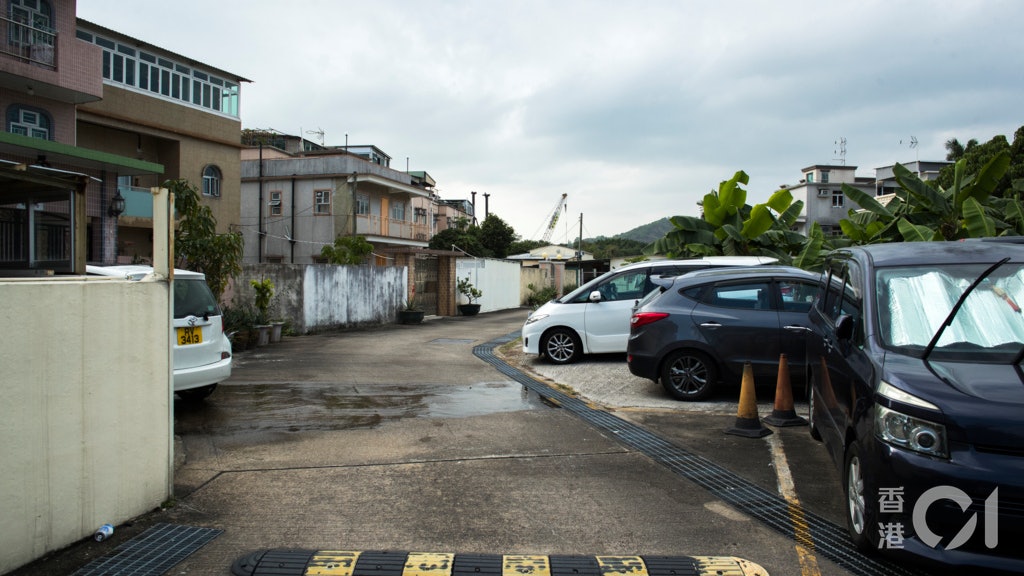01 view
Written by: Commentary Editing Room
2021-06-16 17:40
Last update date: 2021-06-16 17:40
The government often claims that there is a lack of land, but there are currently nearly 2,400 hectares of ancestral halls in the New Territories, many of which are left unused or turned into brownfields due to restrictions on resale terms and scattered ownership.
The government announced last month that it would use the "Land Resumption Ordinance" to recover three pieces of land in the New Territories for subsidized housing purposes. Among them, ancestral halls were involved, which made the community more concerned about the fate of ancestral halls.
Not long after, there were newspaper reports that the government might relax the regulations on resale of ancestral halls, and some members of the Legislative Council suggested lowering the threshold for resale to 80% of ownership.
Although this proposal will help make good use of land, facilitate the planning of new towns and alleviate housing problems, there are still many supporting mechanisms to be implemented in terms of implementation.
The ancestral hall is a rural land in the New Territories jointly owned by the clans.
The New Territories Ordinance stipulates that the clan, family or church that owns the ancestral hall must appoint a manager as a representative. The management and resale of the ancestral hall are also the responsibility of the manager. "With the consent of the Secretary for Home Affairs, there will be Dispose of the land in its sole discretion or dispose of it in any way".
As the demand for land and housing in Hong Kong becomes more and more urgent, there are increasing opinions from all walks of life that the development of these ancestral halls can not only integrate the land in the New Territories to facilitate the planning of new towns, but also avoid frequent reclamation and development of country parks.
From the perspective of land administration, the government can review the future use of the ancestral hall, reorganize the supervision mechanism and improve the land information records, so that the system can keep pace with the times.
It is conceivable that if half of the ancestral hall can be released, there will be 1,200 hectares that can be developed, which is larger than the entire Tsing Yi Island.
The Secretary for Home Affairs, Liu Jianghua, responded to a written question from Legislative Councillors, stating that the Commissioner of Home Affairs has approved more than 300 applications for the sale of land in Zutang in the past five years, but said that the nature of the land concerned is a private organization, so the relevant authorities did not have anything in the process of making the decision on the sale. Character.
(Profile picture)
80% threshold is recommended
At present, the biggest obstacle to the development of ancestral halls is that the civil affairs commissioners generally only approve the manager's decision to resell the land with the consent of all male clan stakeholders, and the opponents do not need to provide reasons.
Opposing opinions should not be taken lightly, but the actual situation is that it is often difficult to obtain 100% agreement in decision-making, especially when it comes to negotiating the sale and compensation.
Furthermore, after the clan has been multiplying or emigrating for several generations, the manager will certainly find it difficult to solicit all members to make a decision, and it is not even clear whether the complete list can be grasped, and the missing members may suddenly come out to oppose it at any time.
Affected by these factors, many ancestral halls have not been booked for long-term use and can only be reduced to temporary parking lots or container yards, which is obviously not ideal.
With the intention of accelerating the development of related idle land, the Legislative Council Member for Architecture, Surveying, Urban Planning and Gardens Tse Wai-quan has always proposed to set an 80% threshold, that is, only 80% of the stakeholders need to agree to sell the ancestral hall. This idea is desirable.
In addition to reducing the resistance of the clan when reselling land, this move encourages real estate developers who have purchased land near the ancestral hall to integrate the land, and objectively determine the role of accelerating development.
However, the Pakatan Rakyat or some rural factions suggest that the threshold should be further reduced to 70%. This ratio may be a bit exaggerated.
Tse Wai-quan, a member of the Legislative Council's construction, survey, and garden sector, suggested that the ancestral hall can be sold as long as 80% of males agree.
(Profile picture)
Beyond the threshold, the government must straighten out the resale process
However, even if the threshold for resale of Zutangdi can be lowered, to ensure a smooth resale process, reduce disputes and accelerate development, of course, other reform measures still need to be taken to manage Zutangdi well.
For example, to clarify whether the 80% threshold can be reached, the authorities must determine the status of all members of the ancestral hall at the time of the transaction. Therefore, it should consider requiring the manager to report the status of the ancestral hall members and ownership under his management at regular intervals, and it is prohibited to increase or decrease outside the reporting period. A member of the ancestral hall.
In addition, the government should also set up a database for statistics and keep the ancestral hall data.
The expressions of past officials and squires reflect the insufficient and fragmented understanding of the ancestral hall among government departments.
Although the Home Affairs Department and Heung Yee Kuk have established a working group in 2018 to study how to facilitate the sale and development of ancestral halls, the former Secretary of the Civil Affairs Bureau, Liu Jianghua, responded to Xie Weiquan’s question last year and revealed that the government still does not have the current number and area of ancestral halls. .
In fact, the land information is already stored in the Land Registry, and all the ancestral halls are under the management of the Home Affairs Department. If the two departments can cooperate, they should be able to coordinate and integrate relevant information.
Taking into account the complexity of the ownership distribution of the ancestral hall, the authorities can even prepare standard terms for the parties to the transaction to follow, so as to reduce the chance of disputes among the ancestral hall members.
Of course, in order to ensure that clan members and real estate developers will not "forget justice" and develop ancestral land indiscriminately, the authorities and the Town Planning Board must also rigorously approve all related land use changes to ensure that the new use of ancestral land is still compatible. The government's urban planning may not damage the surrounding natural environment.
The expropriation of ancestral halls must also strengthen supervision
Government bureaucracy indulges brownfield expansion
290 hectares of brownfield only 11 hectares of houses can be built after how many years?
Research and re-study the problem of subdivided housing cannot follow in the footsteps of brownfields
Land Supply Land Issues Land Resumption Ordinance Heung Yee Kuk 01 Viewpoint









